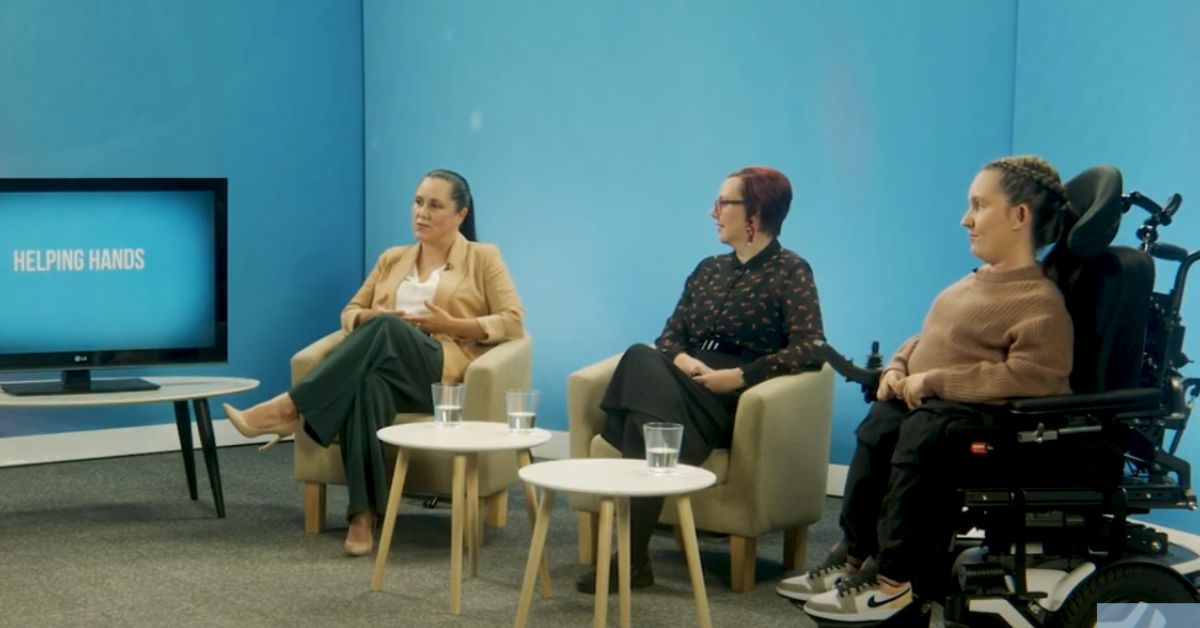By: Helping Hands TV
“Diversity is being invited to the party, but inclusion is being asked to dance,” begins Dr. Louise Gosbell, on answering the question, What does it mean to be inclusive?
Louise is a disability researcher and advocate. She also lives with a disability, as do panellists Laura Cowell, Australian CEO of TLC Disability Services, and Jamieson Leeson, who is a Boccia Champion and Paralympian.
But when truly considering inclusion in terms of disability, Louise suggests our thoughts and actions must go further.
“The idea of inclusion is not just the idea of people with a disability being at something, but feeling like they belong, they’re embedded, they’re part of that community.”
In practical terms, Louise says, that means inclusion of people living with a disability at every level, from planning through to execution in every circumstance; from holding a party, to facilitating a functioning workplace.
The initiatives of TLC Disability Services, says Laura Cowell, seek to function with this exact philosophy.
“At TLC, we lean into the fact that everyone was born with the right to be included. We take that principle through all of our initiatives … It’s all about empowering people and enabling them to feel skilled … It’s not programs created for the sake of having programs … Our life goal is to have person-centred care.”
A person-centred approach is the only way, agrees Jamieson. Jamieson is a World Champion in the extremely technical sport of Boccia and recently won Sliver for Australia at the Paris Paralympics.
One of the biggest mistakes we can make, Jamieson says, is to only see a disability and fail to see the autonomous person in front of us, who deserves to be treated with the same respect as anyone else.
“The thing that sticks out to me, and it happens more often than not, is unfortunately when people have a question about me and they don’t ask it directly to me … Regardless of the person’s disability … even if they can’t respond to the question … you’ve got to be respectful and understand that they’re the person that has the answer, and they’re the person you’re asking about. It feels very excluded when someone’s talking about you right in front of your face.”
Article supplied with thanks to Helping Hands TV.
About the Author: Helping Hands is an Australian produced TV program that airs on 9GEM, Channel 9 and 9NOW, and showcases people and organisations who make the world a better place.

